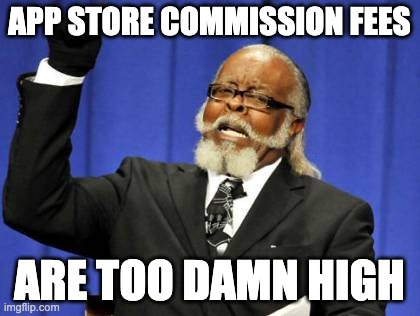Official Blog of the European Competition and Regulatory Law Review (CoRe)
The CoRe Blog is the interactive online platform for up-to-date analysis of EU competition law developments. It’s the blog companion of the quarterly double-blind peer-reviewed European Competition and Regulatory Law Review (CoRe). The CoRe Blog fills in the gaps that a quarterly can’t address: immediate updates and analysis of breaking news in EU competition.
- app stores ×

Blog Editor
LL.M., PhD, currently legal trainee at the Higher Regional Court of Berlin.


Blog Editor
Assistant Professor of Competition Law and Digital Regulation, Tilburg University
Friso Bostoen is an assistant professor of competition law and digital regulation at Tilburg University. Previously, he was a Max Weber Fellow at the European University Institute. He holds degrees from KU Leuven (PhD, LLM) and Harvard University (LLM). Friso’s research focuses on antitrust enforcement in digital markets. His work has resulted in numerous international publications, presentations, and awards (including the AdC Competition Policy Award 2019 and the Concurrences PhD Award 2022). In addition, Friso edits the CoRe Blog and hosts the Monopoly Attack podcast.
Head of Editorial Department and Data Protection Officer
Responsible for EStAL (European State Aid Law Quarterly), EPPPL (European Public Private Partnership Law Review) and CoRe (European Competition and Regulatory Law Review). Overseeing Lexxion Publisher’s privacy and data protection compliance.

Former Blog Editor
Senior Associate, Motieka & Audzevicius PLP, Vilnius
- app stores ×
- app stores ×
How to Submit a Blog Post
Do you want to share your analysis of a competition law topic? We invite you to submit your post on, for example: recent European, national or international judgments or legislation with relevance to EU competition law; new developments, publications, hot topics in EU competition law. The recommended length of the post is 500-2,000 words incl. references (endnotes). Your analysis will be published under the category ‘Guest Blog’.
Here’s how you can publish a post on the Blog as a guest author:
Step 1: Submit your draft.
Step 2: We at Lexxion will review your draft to make sure its content and quality fit the blog. If needed, they will suggest what improvements you should make.
Step 3: Once your draft has been finalised and accepted, we will publish your post.
Submit your guest blog postCategories
Tags
Recent Posts
- Calendar year 2017
- 2017-190 report - Samsung SID Co. Ltd and Samsung SDI (Malaysia) Bhd v European Commission
- 2017-314 Report - Akzo Nobel and Others v Commission
- 2017-520 Report - Toshiba Corporation v European Commission
- 2017-597 Report - Persidera SpA v Autorità per le Garanzie nelle Comunicazioni
- 2017-679 Report - LG Electronics v Commission
- DICE Director Justus Haucap: “Consumers Paying with Data” Is a Bad Analogy
- The first judgement of 2018: Hoffman-La Roche v AGCM (Case C- 179/16) – a remarkable case for its unremarkable implications
- Can consumers pay too much when they pay nothing? The Bundeskartellamt’s Facebook case
- The EU Commission’s Qualcomm decision – does it take two to tango?
Recent Comments
- Homepage in "Tales of two-sided markets, market definitions and anti-competitive effects – insights from Ohio v. American Express"
- China to Discipline Online Platforms with Antitrust Enforcement? - Kluwer Competition Law Blog in "Online platforms and abuse of dominance – the case of Funda Real Estate"
Subscribe to our newsletter for updates on legal developments, upcoming conferences, workshops, and publications in your areas of interest.
Newsletter: Subscribe now










